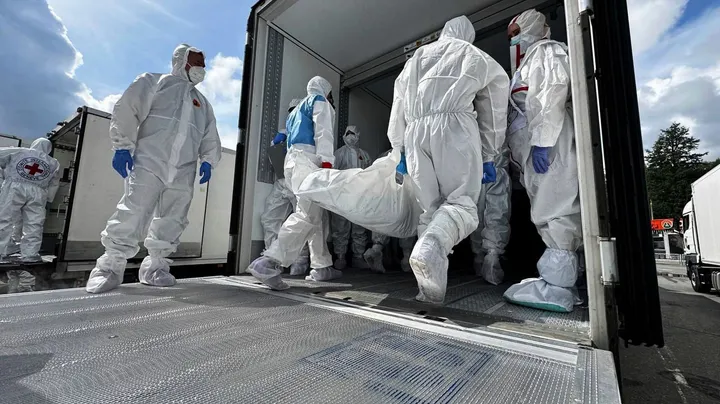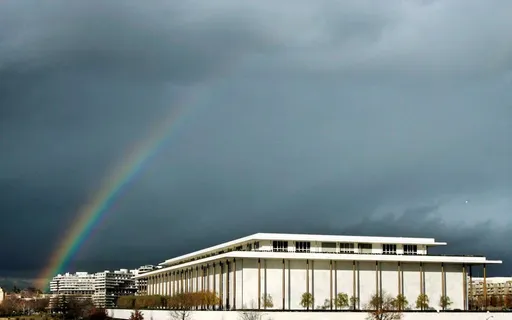Pope Francis has urged American Catholics to “choose the lesser evil” between the Democrat candidate and Vice President Kamala Harris and her Republican rival, former president Donald Trump.
Ahead of the election set for November 5, Pope Francis described both options as “evils” but added that “you must choose the lesser evil”.
“Who is the lesser evil? That lady, or that gentleman? I don’t know. Everyone, in conscience, has to think and make this decision,” the 87-year-old pontiff said, without naming either Harris or Trump, at the end of his gruelling Asia tour.
“Both are against life,” he said, highlighting his disapproval of policies he sees as detrimental to human dignity, whether related to immigration or abortion.
As the head of the Catholic Church and sovereign of Vatican City, Pope Francis wields significant influence among an estimated 1.4 billion Catholics worldwide.
As a rule, the Vatican refrains from direct involvement in politics or national elections.
However, according to John L. Allen, a Vatican expert and the editor of Crux – which specialises in news and opinion on the Vatican and the Catholic Church – Pope Francis intervenes in some cases, “from immigration to the environment and from abortion to gender theory”.
“What’s unusual is that he doesn’t generally address specific elections or candidates, but even then, it’s not absolute,” Allen tells TRT World.
However, according to Allen, the Pope’s interference “makes headlines but doesn’t really drive votes” and might not influence the decision-making of the US’s 52 million Catholic population.
“In general, American Catholics vote in terms of their political preferences rather than whatever the pope or the bishops may say,” he says.
On Israel, abortion and migration
On the Gaza war – barely weeks away from completing one year – the Pope expressed disappointment over the lack of progress toward a peace deal to end Israel’s atrocities that have killed more than 41,000 Palestinians.
"Forgive me for saying, but I don’t see any progress being made toward peace," he told reporters aboard the papal plane, calling a recent Israeli strike on a school that killed children "ugly".
The Pope’s comments were, however, centred more on former president Donald Trump’s immigration policies, which include plans to deport millions of immigrants, and Vice President Kamala Harris’s support for abortion rights.
The pope said not welcoming migrants is a "grave" sin and likened having an abortion to an "assassination".
Reverend Robert Gahl, an associate professor in the Busch School of Business at Catholic University of America, explains to TRT World what the Pope meant by “lesser of two evils”.
“It would be mistaken to think that his phrase "lesser of two evils" referred merely to how much damage might be caused by a certain action or policy,” he says.
For his part, Reverand Gahl thinks it is important to differentiate between inherent moral principles and prudential judgments.
“In this case, Pope Francis was referring to the fact that abortion is always inherently wrong and immigration policy is a question of prudential calculus,” he says.
“While Pope Francis clearly disagrees with Trump's immigration policy, Pope Francis wanted to clarify that supporting abortion in all cases, even up to the day of a baby's birth is of an entirely different order of evil than an objectionable immigration policy.”
Gahl notes that while Pope Francis clearly disagrees with Trump’s immigration policies, he wanted to highlight that supporting abortion in all cases, even up to the day of birth, is a fundamentally different and more severe moral issue than an objectionable immigration policy.
“With abortion, one kills another human being,” Gahl says and adds, “With overly restrictive immigration policies, one fails to welcome the stranger.”
‘Not voting ugly’
Pope Francis also urged every Catholic to vote, saying that "not voting is ugly".
Reverend Gahl goes into detail about the significance of the Catholic vote in US elections.
“The Catholic community in the US is a vital voting block in any contested election,” he explains. Catholics represent a significant portion of the electorate, with more than 20 percent of adults in key battleground states such as Pennsylvania and Wisconsin identifying as Catholic.
However, Catholics usually don't vote as a block.
Historical data from the Pew Research Center reveals that US Catholics are “closely divided” in their political affiliations.
The centre says approximately 52 percent of US Catholics align with or favour the Republican Party, while around 44 percent lean towards the Democratic Party.
For Allen, “the battle is always over that 10 percent or so in the middle”.
The third contestant in the presidential race, Dr Jill Stein of the Green Party, however, disagreed with the Pope’s views on Trump and Harris.
“There is no longer a lesser evil. We’ve got two greater evils,” Stein said in a social media post.
Stein is openly critical of Israel’s actions in Gaza and opposes deporting immigrants. She has also declared access to safe abortion a “non-negotiable human right”.
























